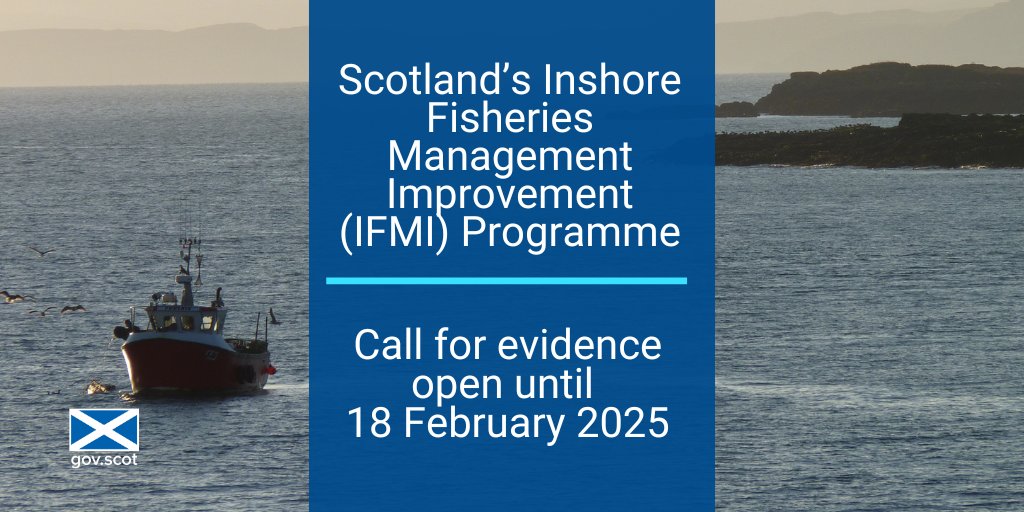Scotland’s coastal waters are some of the most ecologically and economically important areas in the country. Covering 62,212 km², these inshore fisheries provide jobs, food, and a way of life for many coastal communities. But there’s a problem—decades of mismanagement have left our seas in crisis.
Marine Scotland is asking for public input on the future of our inshore fisheries through a Call for Evidence. The deadline to share your views is fast approaching—responses are due by 18th February. Don’t miss your chance to have your say!
This is a rare opportunity for people who care about Scotland’s marine environment—fishermen, conservationists, coastal residents, and seafood lovers—to have their voices heard.
The question is simple: are Scottish inshore fisheries sustainable?
The evidence suggests they are not.

What is not working?
For years, the government has made commitments to protect Scotland’s inshore waters, but many of these promises have gone unfulfilled. Key fish spawning grounds and Marine Protected Areas (MPAs) remain at risk. Commitments to track boats or even count all the fish that are caught have not been delivered. The number of boats and fishers continues to decline. Official assessments confirm that Scotland’s inshore waters are not in “Good Environmental Status.”
The balance has been tipped too far in favour of industrial-scale fishing practices that prioritize short-term profits over long-term sustainability. Small-scale, low-impact fisheries—those that could support communities for generations—are struggling to survive.
What Needs to Change?
Scotland’s inshore fisheries need meaningful and urgent action. Promises are made, deadlines are set—and then they are pushed back, sometimes by years. This pattern has eroded trust in government commitments and allowed inshore fisheries to decline.
Some of the key concerns include:
- Failure to protect critical marine habitats: Only 7.5% of Scotland’s inshore waters are protected from damaging trawl and dredge fisheries.
- Declining fish stocks: Many fishing communities report that once-abundant species have disappeared.
- Lack of transparency in decision-making: Fishers and coastal communities often feel unheard when it comes to policy decisions.
If these issues are not addressed, the consequences will extend beyond fishing. Scotland’s wider marine economy—angling, tourism, and seafood industries—relies on healthy seas. A continued decline will cost livelihoods, biodiversity, and the cultural heritage of Scotland’s coasts.
What Can You Do?
This is a crucial moment for Scotland’s inshore fisheries. Marine Scotland’s call for evidence is a chance to demand real change. Whether you’re a fisher, a seafood lover, or someone who values Scotland’s natural heritage, your voice and experience is relevant to process.
This consultation is open to the public, and anyone can contribute their views. If you care about the future of Scotland’s seas, now is the time to speak up.
How to Respond
You can submit your thoughts directly to Marine Scotland by following this link: https://consult.gov.scot/marine-scotland/ifmi-programme/
The future of Scotland’s inshore fisheries is at stake. Let’s ensure they are managed in a way that benefits both people and the planet.
Our seas are crucial to the well being of our coastline, our country and the world as a whole.
It is imperative that we have careful management in order to preserve a life for the environment while still providing a living for fisherman as well as a future the fishing industry.